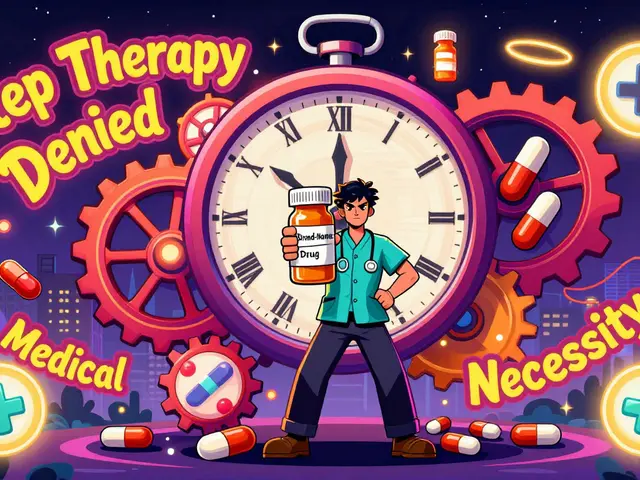Constipation: Causes, Treatments, and Practical Tips
When dealing with Constipation, a common condition where bowel movements become infrequent or difficult. Also known as irregular bowel movements, it can affect anyone at any age.
Effective treatment requires adequate Fiber, the plant‑based carbohydrate that adds bulk and softness to stool. A diet rich in whole grains, fruits, and vegetables supplies the kind of soluble and insoluble fiber that keeps the colon moving. Laxatives, medicinal agents that stimulate or ease stool passage are useful when dietary changes alone aren’t enough; they work by either drawing water into the intestine or stimulating muscle contractions. Meanwhile, the Gut microbiome, the community of bacteria living in your digestive tract plays a subtle but important role, influencing stool consistency and frequency through fermentation of fiber into short‑chain fatty acids.
Constipation encompasses abdominal discomfort, bloating, and straining during defecation. It often shows up after a change in routine, reduced fluid intake, or certain medications that slow gut motility. Addressing it means looking at lifestyle, diet, and sometimes medicine. For many, simple tweaks—drinking enough water, moving regularly, and adding a fiber supplement—provide constipation relief without side effects. When those steps fall short, over‑the‑counter osmotic or stimulant laxatives can jump‑start the process, but they should be used according to guidance to avoid dependence.
Understanding the interplay between fiber intake, laxative use, and the gut microbiome helps you pick the right approach. A high‑fiber diet supplies the raw material for beneficial bacteria, which in turn produce compounds that support smooth colon function. If you opt for a laxative, choose one that matches your symptom pattern: bulk‑forming agents add volume, osmotics draw water in, and stimulants trigger muscle contractions. Keep an eye on medication side effects—antacids, certain pain relievers, and some antidepressants can worsen constipation, so discuss alternatives with your doctor.
Beyond food and medicine, regular physical activity encourages natural peristalsis, and establishing a consistent bathroom routine trains your body to expect regularity. Stress management also matters; chronic stress can interfere with gut nerves and slow transit. By combining these habits—balanced fiber, mindful laxative use, hydration, movement, and stress reduction—you set up a sustainable system that reduces episodes and improves overall gut health.
Below you’ll find a curated set of articles that dive deeper into specific treatments, natural remedies, medication comparisons, and lifestyle tweaks. Whether you’re looking for quick relief, long‑term strategies, or a better understanding of how different drugs affect bowel function, the collection offers practical insights you can apply right away.Key Factors and Management Strategies
Anal Itching and Anal Fissures: Causes, Connection & Relief
Explore how anal itching and anal fissures are linked, uncover causes, symptoms, treatment options, and prevention tips to find lasting comfort.





